[Anti]disciplinary-Topographies
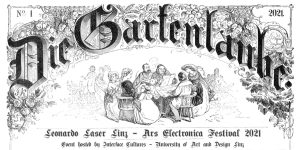
The Garden Gazebo, LASER Linz
Christoph Thun-Hohenstein (AT), Monica Gagliano (AS), Martin Pfosser (AT), Gabriele Winkler (AT), Christa Sommerer (AT), Diana Ayton-Shenker (US), Fabricio Lamoncha (ES), Christiana Kazakou (GR/UK)
In September 2021, Linz is joining the Leonardo Art & Science Evening Rendezvous (LASER) network. This international program brings together artists, scientists, scholars and the general public for inspiring presentations and conversations.

YOUR HEALTH - Wild Plants, Cultivated Plants or In-vitro Plants
Jill Scott (AU/CH), Katja Cankar (NL), Marille Hahne (CH), Ingrid van der Meer (NL), Joanna Hoffman (PL/DE), Suvi Hakkinen (FI)
This LASER ZURICH event constitutes an immersive presentation by six researchers in four parts. They focus on how and why the production of our food will change in the future to incorporate the concepts of wild plants, cultivated plants and in-vitro plants.
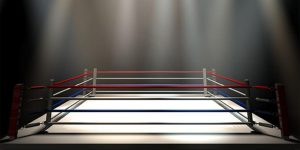
Gloves Off: A Performative Debate about DIY Labs and Citizen Science
Ellen Levy (US), Patricia Olynyk (US), Piroska Kopar (US), Alex Pearlman (US), Jill Scott (AU/CH), Siddharth Ramakrishnan (US), Paul D. Miller, aka DJ Spooky (US)
Who can and should produce scientific knowledge, and where should it be produced? This performative debate explores whether science should be only in the hands of “experts.”
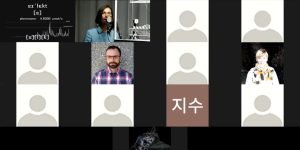
Microbes Performing in Zoom
Klaus Spiess (AT), Lucie Strecker (DE)
There is not only a decline in linguistic and phonetic diversity but also in the diversity of the microbiomes. Both the monopolisation of languages and the spatial distancing in digital communication exacerbate this decline. Spiess&Strecker's performance counteracts the simultaneous decline of microbial and linguistic diversity by presenting a vision of language as an ecological process.
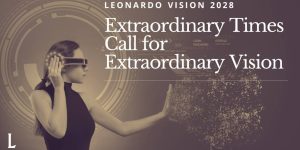
Extraordinary Times Call for Extraordinary Vision
Diana Ayton-Shenker, Leonardo/ISAST, CEO: ASU-Leonardo, Executive Director (US)
The rapid digitization of human culture intensifies the urgency for a corollary to humanize digital culture. Humanizing digital culture is critical to advance a New Creative Agenda and apply a creativity lens that augments and accelerates regeneration with the Sustainable Development Goals (SDGs)

Urgent Since a Long Time Now
Luca Forcucci (CH/IT)
The power of the voice (s) allied with poetry and (deep) listening are perhaps ways to deal with urgent terrestrial and human problems caused to the biosphere, which have been urgent for a long time now. The work is a sonic collage, like a surrealist poem based on podcasts conducted since 2018.

Proximal Fields
Joel Ong (CA), Elaine Whittaker (CA), Nina Czegledy (CA), Roberta Buiani (CA), Kavi (LV/CA), this event is organised by LASER Toronto (CA)
The Fields Institute was closed to the public for a long time, but it has not been empty. Peculiar sounds and intriguing silences, the flows of the few individuals and janitors occasionally visiting the building made it surprisingly lively. Microorganisms, dust specs and other invisible guests populated the space undisturbed while the humans were away. The building is alive, and the artists created site-specific installations to reflect this condition.
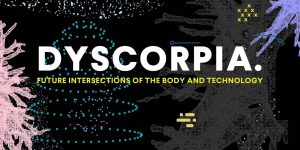
Futurecasting
LASER Alberta (CA), LASER Tempe (US), Diana Ayton-Shenker, Leonardo/ISAST, CEO (US)
How can an art, science and technology practice foster unusual connections and creative problem solving? How do we design for change? Through interdisciplinary collaboration, how do we engage in acts of speculative design and envision possible futures?
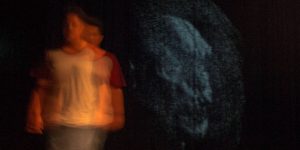
Architecting Global Communities
LASER Auckland (NZ), LASER New York City (US), LASER Nomad (DE), LASER Pasadena (US), LASER Rio de Janeiro (BR), LASER Santa Fe (MX), LASER St. Petersburg (RU)
Through interdisciplinary collaboration, transnational communication and planetary citizenship, how do we build stronger communities committed to social justice, elevating underrepresented voices, and bridging the digital divide?
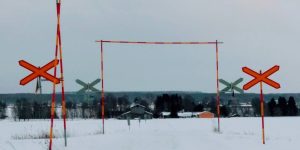
Interbeing Between Complex Systems
LASER Helsinki/Espoo (FI), LASER Mexico (MX), LASER Totnes (UK), LASER Zurich (CH)
We are not alone on this planet, but part of a vast, complex web of species, agents, and other beings. What are our ethical responsibilities to the environment and to the multiplicity of living systems that comprise it? How can practitioners of art, science, and technology sustain these dynamic networks and evolve interspecies communication?

